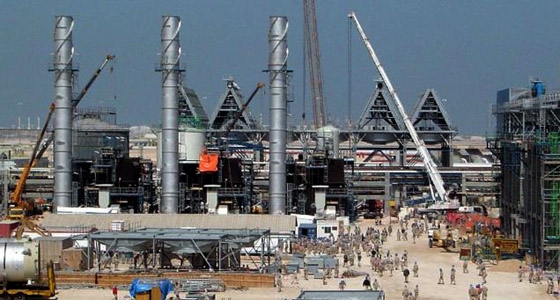Qatar’s construction industry will continue to be the region’s “top performer” in the long-term on the back of mammoth projects being taken up in the country, a new report has shown.
Construction and energy projects in the pipeline worth $150bn will have a “positive” impact on the sector, researcher BMI said in a report.
“With vast hydrocarbon wealth inflating public coffers and a business environment offering stability at a time of wider regional unrest, we expect Qatar’s construction market to be regarded as a safe haven for the region’s investors. However, we note that due to long lead times the majority of awarded projects have yet to take off, meaning the impact will not be notable on construction sector growth only from this year,” BMI said.
Qatar’s construction sector is poised to make major gains from 2016 in view of the mega projects at hand.
However, BMI warned there will be a “potential risk of decreasing margins” due to continuously rising construction costs as a result of a surge in infrastructure investment.
Data indicates that Qatar’s spending on infrastructure is expected to reach $150bn ahead of the FIFA World Cup 2022. A series of infrastructure projects are in the pipeline, including a $1bn transport corridor project in Doha; $20bn investment on roads; $25bn on railways; $15.5bn for the new Doha airport; $4bn to be invested in stadia and $8bn for the deepwater seaport, the report said.
Additionally, Qatar’s hospitality industry will see the addition of thousands of rooms as new hotels are being built in the city.
New roads are planned to connect Ras Laffan Industrial City with University Road and the Shamal Road, providing three lanes in each direction. The plans were unveiled by Ashghal as part of a larger scheme to build roads around the western and northern borders of the Ras Laffan Industrial City.
The first phase of the Ras Qartas energy plant was completed in August 2011. The $4bn plant has been designed to generate some 2,730MW of power and 63mn gallons of desalinated water. The plant will supply the Qatar General Electricity and Water Corp (Kahramaa) under a 25-year contract. Production will then be used to feed the local network or the GCC (Gulf Co-operation Council) electricity link-up system. The development marks the commissioning of the biggest electricity generation plant in the country, the report said.
Work has started on the $1.37bn Doha Festival City project. This is just one of a series of flagship projects that have got under way since the country was awarded the FIFA 2022 World Cup in December 2010.
Preparations for 2022 will effect major changes in Qatar’s infrastructure sector. While major international players undoubtedly stand to win from big-ticket stadia and infrastructure projects, local contractors also will benefit substantially, either through partnering with foreign firms or undertaking a smaller project, of which there are many, the report said.
But on the back of the growing numbers of flagship projects Qatar is seeing significantly higher construction costs.
According to the 2012 International Construction Costs Report prepared by quantity surveyor EC Harris, Qatar (now placed 13th out of 53 countries) has surpassed both the UK (15th) and the US (16th) following a surge in infrastructure investment ahead of the 2022 FIFA World Cup, and in order to deliver its mammoth 2030 National Vision, the report said.
Gulf Times
5 January
























































